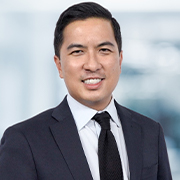Guest: Ari Hoffman, CEO, Ted Baker North America
Host: Oliver Chen, Retail & Luxury Analyst, TD Cowen
Live from TD Cowen's eighth annual Future of the Consumer Conference, Oliver Chen hosted Ari Hoffman, CEO, Ted Baker North America. Mr. Hoffman brings a wealth of experience across the luxury and retail space, including having served as President of Yves Saint Laurent and Lacoste.
Together, they speak about the future of department stores, building timeless brands, and delivering on the best customer experience. They also discuss a range of topics including connecting with customers across various age demographics, how to compete in the age of ultra-fast fashion and how to approach artificial intelligence to improve a business.
This podcast was originally recorded on June 5, 2024.
Speaker 1:
Welcome to TD Cowen Insights, a space that brings leading thinkers together to share insights and ideas shaping the world around us. Join us as we converse with the top minds who are influencing our global sectors.
Oliver Chen:
We're excited to talk about the future of brands. This is Oliver Chen, TD Cowen's luxury retail and new platforms analyst. I'm here with our Retail Visionary series, which features visionary people and ideas. Ari Hoffman is here, he's the CEO of Ted Baker. He was also formerly the CEO of Scotch & Soda, and the president of other awesome brands such as Saint Laurent and Lacoste. Ari, thanks for joining us.
Ari Hoffman:
It's a pleasure, thank you.
Oliver Chen:
Ari. It's been a disruptive time in the land of brands and retail. What's happening now? What excites you most about what you're seeing in the marketplace?
Ari Hoffman:
Well, brands today are more relevant than ever. I started an industry where you used to be a category specialist, a skirt maker, a shirt maker, etc., and [inaudible 00:01:14] more and more into brands, and today, I would say the brands are more relevant than ever. I think before, as I was growing up in this business, as I've learned this business, especially working for many years at Yves Saint Laurent, I've learned, the brand comes first and sales will follow. A lot of times, you come into this business, you think about sales, how can you generate sales, more sales? [inaudible 00:01:35] talk about sales, right? You do. But from where I come from, it's, first comes brand. And if you get it right, and brand has character and has grit and what it stands for, it's authentic, everything else will fall into place. So this is where I start, brand first, everything else follows.
Oliver Chen:
Well, how do you get it right? What's your secret to success? And you've worked with a wide range of brands, can you give us examples?
Ari Hoffman:
To me, a brand is like a person. It has a look, a feel, a personality, and just as a person, you have to be true to yourself. That is an ethos of any brand. So you have to be true to yourself, what you are stand for. Look, you can be the best in class. I worked for many years with Yves Saint Laurent. Yves Saint Laurent is couture, haute couture, high fashion. Then also, I worked with a brand like Lacoste. So Lacoste, you're talking about, truly, a polo shirt at the time was 65, 75, $85, but it was the best in class. And you stand for something, so the polo shirt had the mother-of-pearl button, had the best Egyptian cotton, etc. Saint Laurent was a master tailor and draper, etc.
So every brand has its own kind of ethos and DNA, what it stands for, and that's what you have to think about. So when I went on from Saint Laurent to Lacoste to Scotch & Soda, these great world brands, I didn't try to copy and paste what I've learned, what one brand did into the next. The first thing is, my expression is, you get under the skin of a brand, try to understand what the brand is, and then you can plan your next move. Business principle, business principle, of course, but in terms of understanding what you represent, you really have to spend the time and understand what it's all about.
Oliver Chen:
Well, Ari, how do you balance nostalgia and heritage of a brand versus being modern and fresh? You're a very modern guy, and what does that mean to reinterpret brands to be culturally relevant?
Ari Hoffman:
It's amazing, I've been in this business for a long, long time, and I still think of myself as relevant. And the only reason why I do so, because I learned from the past and embrace what's coming next, whether it was digital age, omnichannel, versus obviously, the hottest topic, AI, etc. And you have to be curious. So again, you can't waver, also, from what you stand. You just evolve and you adapt your language, and as you go along, you adapt to the customer, the new generation, etc., but what you stand for, it doesn't change, really, in principle. Just like, as a person, if you're a kind, good person, it doesn't change, whether you're young, mid-age, or older.
The same thing goes with brand, so the difference is, so you have ... Never forget where you come from. You always have to remember that, and you build on that, you build and you embrace. But you can keep on changing left and right, because today, the trend is wide bottom jeans versus a ... Tight jeans versus a short skirt versus a long skirt versus [inaudible 00:04:50], whatever. You don't kind of keep on jumping on trends, you bring in trends into your portfolio, but you really stay always true to your customer and to your brand.
Oliver Chen:
Well, Ari, we're here at the Future of the Consumer Conference, what's next? What is the future? Some things that you're focused on?
Ari Hoffman:
Well, for me, the future is today, because today is the future anyway. And that is being here and listening to, of course, what AI is bringing to the picture. AI, to me, is very, very exciting. I mean, even for me as a basic user of ChatGPT, it just literally changed my life. I mean, it's amazing, anytime I want to write a serious piece of paper, I'll run it through ChatGPT. So it's amazing what it brings in, but does it change the way I do business? No, actually, I learned from it, I just bring it into the business, the learnings, and try to really ... It helps me to execute better, because it's all about execution ultimately, right?
So as an example, we have lots of data, right? People look at big data, small data, whatever, clean data, or so. So you have a lot of data, but how do you use that data? And that has been such a struggle, you have all these data points and so forth, and you're trying to sort it out, try to make a decision based on data, and it's been very, very difficult. Now, I can see how AI coming in, how it helps to sort out the data. And actually, based on the data, actually, not just analyze the data, but suggests what you should do with the data, which is amazing, which is kind of wow, really.
And I'll tell you, in many cases, it's a lot smarter than you and I, are in a way. And that is exciting, so it is exciting. The excitement is the new tools, the excitement is the way we communicate, the excitement is how we can reach directly to the customer and can have direct dialogue with the customer, authentic, really, dialogue with the customer. That's excitement, but what you represent, the quality, the authenticity, and the product of what you do, that doesn't change so much, you just execute better.
Oliver Chen:
I teach a class at Columbia Business School, and you've helped me teach it on magic and logic. I also think you're a leader that understands emotions and merchandising and style and fashion as well as logic. How do you see the magic intersecting with AI and brands?
Ari Hoffman:
Well, to me, magic is talent, it's people. Logic is AI to me. And if you can bring the two together, then it's truly a happy marriage. So this is where I would draw a line in my view, what AI brings or not. The magic, we do create. There's no substitute to a great talent, a visionary, a designer coming in, or a creator coming in, creating something that hasn't been done before. Because to be an originator ... What is an originator, really? Be it art, be it whatever it is, it's someone who moves us forward, it's not someone who just takes what we've done in the past and just does it better.
That's called an imitator or a copier, except, look, you can do something even more brilliant, to copy something even better, and that's what AI does. But in terms of magic, it's really these incredible, creative people that come around, and I always have tremendous respect. And I'm quoting a very well-known businessman, is, he would say, listen, businessmen are a dime a dozen, but designers are a rare breed, truly creative people are a rare breed, and this is where the magic happens.
Oliver Chen:
Ari, what about customers? What about younger customers? What do customers want, and how do you execute it quite commercially?
Ari Hoffman:
Well, customer is live and well, certainly. Well, in the old world, we used to tell the customer what to do, what to wear, and what the trends are. Actually, it has come almost 180 degree turn, where the customer tells us what's happening and what's going on. So the customer's in driver's seat, without any doubt, but that is not to say that we just do what the customer wants to do, because you merge the two, what the customer wants and what you stand for, and how the two kind of meet to me. But to be able to communicate with a customer, that's incredible. Look, 15, 20 years ago, it didn't exist, just think about it.
So of course, there's a need-based customer, so you need to buy certain things. You need to buy a basic T-shirt, or you need to buy food, certain things that are need-based. It's cold out there, you need to buy a piece of outerwear, etc. So there's a need-based, which is one thing that you need to address, and more core product. And then, there is that magic or creating the demand for something. So it's creating demand. And by the way, that's what trends do, the trends kind of create new demand, saying, again, whether you have a slim skirt, you want a fuller skirt or a shorter skirt, it's creating ... So it's always, you want to create, because otherwise, the world becomes very stagnant, so you always create a new view, a new look.
And that's what fashion is, it's exciting. Otherwise, it just becomes quite boring, frankly, if you wear, which I do, a white shirt and a blue Navy blazer, right? I constantly wear that, it's true, so it's my default. But doesn't matter what it is, you need that core, but you need always, that fun outfit or whatever, be it for vacation, whether you go to the beach, whether you go to a wedding, whatever, you do need that fun. And actually, we've seen that, also, through the pandemic. We sat in our pajamas, whatever, and then you realize how boring the life can be just sitting in these pajamas, and then, people started going out and consuming an incredible amount of really dressy, glamorous clothing, putting on makeup and going almost to extremes, in a way, because people realize, we need that. As a human being, it's a desire that we need to fulfill.
Oliver Chen:
Yeah, art, science, innovation, excitement, expression, too. I'm the lead analyst on luxury goods as well as department stores, but I'm a little scared for the future department stores. What's going to happen, will department stores be relevant, fast-forward 10 years? Selfridges is my favorite store in the world, but the US has been very difficult.
Ari Hoffman:
As is mine, actually, it's probably the most beautiful store in the world. Look, as I said, I've been in this business a long time, and I can name a dozen of department stores that don't exist anymore, from even New York City, [inaudible 00:11:35], Bonwit Teller, Lord & Taylor, just in New York alone. So the demise of the department store is well-documented, we all know that. And there will continue, there will be a few or several, or a number that will remain relevant, but in a different way. Again, the omnichannel world is a reality, so it kind of all connects to the 360 kind of world of consumption. So there'll be less, but there'll be very clear leaders in luxury, mid, and lower segments, and they will be dominating.
What will change, probably, especially in a better or more designer world, what will change is what I've learned when many, many years ago, went to Japan. And kind of interesting, because that's the first time that I was exposed to the idea of leased spaces within department stores, where a brand, and all the European big brands, they didn't have their branding as part of the buy of the department stores. They said, we're going to lease the space, we're going to run the shop, because we can do it better. We can create the boutique environment within a department store.
So I think, more and more, this trend has started in some of the stores within the United States, and I think probably, that will be a win-win for the future if you want to go to one space. Essentially, what's a department store? Michael Gould, the former CEO of Bloomingdale's, told me a long time ago, which, I love what he said, he said, a department store, essentially, it's a vertical mall, or it is a vertical mall, so people want to explore things. So if you wander from floor to floor, but you have true experience of brands versus a rack and another rack, another rack of clothing, it's quite different experience. So I do believe that concessions or leasing shops within that vertical mall, I think will be the future.
Oliver Chen:
What about stores? What about a store environment and brands? What makes a fabulous store? How do you think about experiential retail?
Ari Hoffman:
Well, experiential retail is a buzzword, but to me, it starts with people. People talk about experiential meaning, all that fluff, but just think about it for yourself. If you come into a store and you have an amazing service, you have a personnel or someone who takes care of you, who will provide that experience, meaning, will greet you, will understand what you need and will service your need, and will say thank you and make you feel welcomed, that's a game changer. It's not about fluff.
Fluff, yeah, it's an attraction to come in, and you come in, oh, wow, it's interesting. You want to be in a relevant environment, certainly, you want to be in a mature environment, but ultimately, that experience provided by a person ... And by the way, it goes through the world of luxury or anywhere else, you can hire the best contractor to do your apartment, but if they're not communicative, if they're not taking care of you, even they've done good work, but if they've left it messy, they have not really provided you the type of communication you would like to, you're not going to be happy to experience, even if they're a good contractor. And there's no difference in the store.
Oliver Chen:
Ari, another hot topic, Shein, Temu, Amazon clothes, even, ultra-fast fashion, Zara. How do you see these platforms competing, and also, taking share? They're growing faster than many brands.
Ari Hoffman:
Well, that space kind of been going ... It was hot and it was cold, now it's hot again. And it'll be up to, really, the next generation of consumers, be it Z or after generation, is to what extent they want to embrace fast fashion care about the environment. So it's one thing, talk, you have to walk the talk. And unfortunately, I've come across a lot of young customers who talk about the environment and certain things, but then, when you look at a sustainably made product, organic cotton, etc., that is 30, 40% more than the product that's made somewhere else, they'll buy the cheaper product, ultimately.
So you have to kind of vote for what you believe in, so the fast fashion will be, again, that consumer, to what extent they'll embrace fast fashion. But it's exciting, but it's also a race to the bottom. I mean, who can do a cheapest product? I tried some of these ... I love to experiment and try some of these websites, and I did buy some of the product, and I looked at it, and I gave it away, honestly, because I thought it was ... You get what you pay for, ultimately.
Oliver Chen:
What are the hardest challenges that you're facing next, if you had to name a couple?
Ari Hoffman:
The hardest challenges is, the customers are fickle, and how do you have that stickiness in your business? That's probably the hardest challenge, it's one thing when you kind of develop an affinity with a customer, but how do you really keep that in the long-term versus just for the moment? As they say, it's much harder to stay at the top than to get to the top. And it's the same thing, it's one thing, you acquire a customer, but how do you develop the stickiness? That's probably the biggest challenge.
Oliver Chen:
Final question, what's your advice for people who love brands, or people that you mentor? Do you have any advice or advice that you wish you heard earlier in your life?
Ari Hoffman:
Wow, well, certainly, I'm not going to tell you, follow your passion, because that's been proven wrong, for sure. But I think that you have to expose yourself to different product, different companies. People have a preconceived notion of what they like, what they don't like. And I had no idea I'll be in this business, I just happened to be kind of being exposed, I met someone who introduced me to this business, and I kind of developed a liking to the business. So I would say, expose yourselves to different scenarios, be curious, learn.
And once you kind of develop that kind of understanding, and you may realize that you could be actually, really good at it, or you may actually really love it, ultimately. But I don't think just the idea of just, I love doing it, and just come in with idea of love, just do something, just, I love to do something, and just jumping right into it. For some, it works, but for very, very few, that truly, truly, at the very beginning, have a certain love for certain things to do. I would say, expose yourself, try out different things, and decide what's right for you.
Oliver Chen:
Well, Ari, it's been a pleasure. You walked us through the secrets to building elite brands, and also, many aspects of the future, and also, how to be culturally relevant. Thanks for your time.
Ari Hoffman:
The secret is out. Thank you, Oliver.
Speaker 1:
Thanks for joining us. Stay tuned for the next episode of TD Cowen Insights.
The views or opinions expressed herein represent the personal views of the writer and do not necessarily reflect the views of TD Securities or its affiliates.
This material is intended to provide commentary on the market for commodities discussed herein.
Not Advice: The information contained in this material is for informational purposes only and is not intended to provide professional, investment or any other type of advice or recommendation, or to create a fiduciary relationship. Neither TD Securities (USA) LLC (“TD Securities USA”) nor any of its affiliates (collectively, “TD”) makes any representation or warranty, express or implied, regarding the accuracy, reliability, completeness, appropriateness or sufficiency for any purpose of any information included in this material. Certain information may have been provided by third-party sources and, while believed to be reliable, has not been independently verified by TD, and its accuracy or completeness acannot be guaranteed. You should not make an investment decision in reliance on this material, which is intended to provide only brief comments on the topics addressed, and is based on information that is likely to change without notice.
Not Securities or Derivatives Research: This material has not been produced, reviewed or approved by TD’s securities or derivatives research departments. The views of the author may differ from others at TD, including TD securities or derivatives research analysts.
Not Independent: The views expressed in this material may not be independent of the interests of TD. TD may engage in conflicting activities, including principal trading before or after posting this material, or other services involving commodities discussed in this material, or related financial products. TD may have a financial interest in the commodities discussed in this material, including, without limitation, a financial product that references such commodities.
Not An Offer or Solicitation: Nothing contained in this material is, or should be construed as, an offer, a solicitation of an offer or an invitation to buy or sell any commodity, or any financial product that references such commodity, and it is not intended for distribution in any jurisdiction where such distribution would be contrary to law.
Risk of Loss. Transactions in commodities, and financial instruments that reference commodities, involve risk of loss, and are subject to the risks of fluctuating prices. You should weigh potential benefits against the risks. Past performance is no indicator of future performance and the Materials are not intended to forecast or predict future events.


Oliver Chen, CFA
Retail & Luxury Analyst, TD Cowen

Oliver Chen, CFA
Retail & Luxury Analyst, TD Cowen
Oliver Chen is a Managing Director and senior equity research analyst covering retail and luxury goods. Mr. Chen’s deep understanding of the consumer and his ability to forecast the latest trends and technological changes that will impact the retail space has set him apart from peers. Oliver’s broad coverage and circumspect view makes him the thought partner of retail and brand leaders. His coverage of the retail sector has led to numerous industry awards and press coverage from CNBC, Bloomberg, The New York Times, Financial Times, Barron’s, The Wall Street Journal and others. Mr. Chen was recognized on the 2018 and 2017 Institutional Investor All-America Research team as a top analyst in the retailing/department stores & specialty softlines sector. Mr. Chen was also selected as a preeminent retail influencer as he was named to the National Retail Federation (NRF) Foundation’s “2019 List of People Shaping Retail’s Future.” Considered an “industry expert,” Mr. Chen frequently appears as a speaker/panelist at key industry events. Mr. Chen is also an Adjunct Professor in Retail and Marketing at Columbia Business School, teaching the course “New Frontiers in Retailing” and was awarded recognition as an “Outstanding 50 Asian Americans in Business” by the Asian American Business Development Center in 2023 given his role in driving the U.S. economy.
Prior to joining TD Cowen in 2014, he spent seven years at Citigroup covering a broad spectrum of the U.S. consumer retail landscape, including specialty stores, apparel, footwear & textiles, luxury retail, department stores and broadlines. Before Citigroup, he worked in the investment research division at UBS, in the global mergers and acquisitions/strategic planning group at PepsiCo International, and in JPMorgan’s consumer products/retail mergers and acquisitions group.
Mr. Chen holds a Bachelor of Science degree in business administration from Georgetown University, a master’s of business administration from the Wharton School at the University of Pennsylvania, and is a CFA charterholder. At the Wharton School, Mr. Chen was a recipient of the Jay H. Baker Retail Award for impact in retailing and was a co-founding president of the Wharton Retail Club. He also serves as a member of the PhD Retail Research Review Committee for the Jay H. Baker Retailing Center at the Wharton School. Mr. Chen was recognized in the Wharton School’s “40 Under 40” brightest stars alumni list in 2017.
Mr. Chen’s passion for the sector began at the age of 12 when he began working with his parents at their retail business in Natchitoches, Louisiana.







